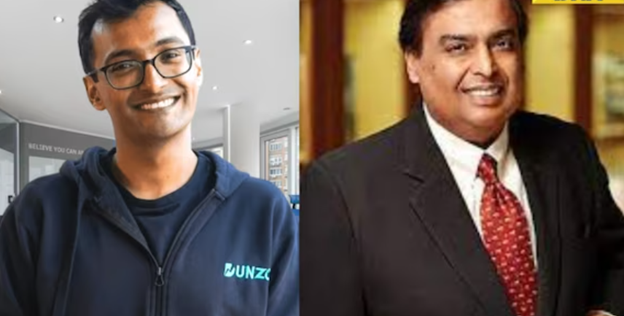In the realm of Indian entrepreneurship, Mukesh Ambani's illustrious investment journey spans across various successful startups, one of the remarkable ones being Dunzo—an instant delivery app that now finds itself in a significant crisis. Founded by Kabeer Biswas in 2014, Dunzo's evolution from a mere WhatsApp group to a thriving business venture attracted the attention and substantial investment of Ambani, amounting to over Rs 1600 crore. However, the company is currently facing turbulent times, marked by financial setbacks and internal upheaval.
Kabeer Biswas, a computer science engineer, initially delved into the world of business by working in a plastic factory in Silvassa before pursuing an MBA. His entrepreneurial spirit was honed through experiences in sales and customer service at Airtel. His first venture, Hoppr, which was later acquired by Hike, served as a springboard for his subsequent entrepreneurial endeavors.
Transitioning to Bengaluru to solidify the evolution of Hoppr, Biswas, along with Ankur Agarwal, Dalvir Suri, and Mukund Jha, laid the foundation for Dunzo—an initiative initially catering to instant deliveries through a WhatsApp group. Over time, with substantial growth and investment, Dunzo evolved into a full-fledged app-based platform, expanding its services to encompass groceries, essential supplies, and more, even before the emergence of competitors like Blinkit and Swiggy Instamart.
The pinnacle of Dunzo's journey came when Mukesh Ambani's Reliance Retail injected USD 200 million into the company, skyrocketing its valuation to over USD 775 million (equivalent to Rs 6400 crore). Despite this success, the company has encountered a tumultuous phase, evident in its recent financial report indicating a staggering loss of Rs 1,800 crore in FY23—an alarming 288% surge from the previous year.
Presently, Dunzo finds itself grappling with financial constraints, high-profile exits of co-founders and key executives, delayed employee salaries, and substantial layoffs across multiple phases. The startup, once lauded for its rapid growth and investor interest, is now navigating through a challenging period, reflecting the unpredictable terrain of the startup ecosystem.






